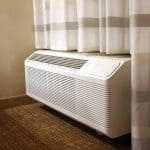In our modern era, where we spend a significant portion of our lives indoors, the quality of the air we breathe has become an imperative concern. Indoor air quality (IAQ) not only affects our health and well-being but also our overall productivity and mood. The role of ventilation in ensuring superior indoor air quality cannot be overstated. Effective ventilation acts as a bridge, ensuring that outdoor and indoor environments maintain a healthy balance.
Understanding Indoor Air Quality (IAQ)
Indoor Air Quality, commonly abbreviated as IAQ, refers to the air quality within and around buildings and structures, directly related to the health and comfort of the inhabitants. Several factors and components determine the quality of indoor air. These include the levels of pollutants, humidity, and temperature. Common indoor pollutants originate from various sources, including household cleaning agents, building materials, tobacco smoke, outdoor pollution seeping in, and even activities like cooking.
Ventilation Defined
At its core, ventilation is the process of introducing fresh air into a space while removing stale or polluted air. This exchange is crucial in maintaining a healthy indoor environment. There are primarily three types of ventilation methods. Natural ventilation relies on passive air movement through windows, doors, and other openings. Mechanical ventilation utilizes fans and other mechanical systems to drive the movement of air. A hybrid system, as the name suggests, combines both natural and mechanical methods, offering more control and efficiency in air exchange.
How Ventilation Improves Air Quality
One of the principal ways ventilation enhances indoor air quality is through dilution. By continuously bringing in fresh air and expelling polluted air, the concentration of pollutants indoors is significantly reduced. This process, over time, ensures that inhabitants are not continuously exposed to high concentrations of harmful substances. Additionally, ventilation plays a crucial role in controlling humidity levels. Excessive moisture can lead to mold growth, which can be detrimental to health. Effective ventilation counters this by ensuring a steady flow of dry, fresh air.
The Health Benefits of Superior IAQ
Breathing clean air has undeniable benefits for our physical health. A good IAQ can prevent a host of respiratory diseases, reduce allergy symptoms, and lower the risk of long-term health issues. But it’s not just our physical well-being that benefits. The quality of the air we breathe can significantly affect our cognitive functions and overall mental health. Clean, well-ventilated spaces have been linked to improved concentration, better sleep quality, and reduced stress levels.
Challenges in Maintaining Optimal Ventilation
While the advantages of good ventilation are clear, maintaining optimal ventilation does come with challenges. One significant concern is the associated energy costs, especially in climate-controlled environments. Every time fresh air is introduced, it requires energy to heat or cool it to the desired indoor temperature. This challenge is especially evident in modern homes designed to be airtight for energy efficiency. Balancing the need for fresh air with energy conservation requires innovative solutions and practices.
Modern Solutions: Smart Ventilation Systems
Enter the world of smart ventilation systems – a blend of technology and innovation designed to enhance IAQ without compromising energy efficiency. These systems actively monitor the quality of indoor air, adjusting ventilation rates based on real-time readings. The integration of smart home systems takes this a step further. Such systems can intelligently adjust ventilation based on various factors, such as the number of occupants or specific activities like cooking, ensuring optimal air quality at all times.
Practical Tips for Enhancing Home Ventilation
For homeowners keen on improving their home’s ventilation, several simple steps can make a significant difference. Firstly, make it a habit to open windows and doors regularly, especially during mild weather. This not only introduces fresh air but also helps in expelling indoor pollutants. Secondly, ensure that exhaust fans in areas like the kitchen and bathroom are in good working condition and are used frequently. Lastly, the importance of regular maintenance cannot be overstated. Clean and well-maintained ventilation systems operate more efficiently, ensuring a constant flow of fresh, clean air.





